
Many Hiba parents who hold high-level executive positions are often out of our sight in light of their busy schedule. However, they still can exert their influence on us because their thought-provoking viewpoints that can shed some light on the essence of education. We were honoured to interview such a Hiba pupil's father and learn his opinions on education.
——Editor's note
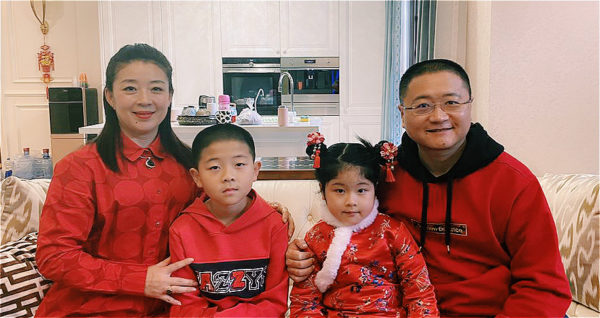
Peter's father earned an MBA in England and received an international education earlier than most of his peers. He chose a Hiba education for his children, and they have been pupils at our school since its founding. When Peter joined Hiba school as a grade 3 pupil, his younger sister Alice was enrolled in Hiba Nursery. This year marks Alice's transitioned to Hiba School as a grade one pupil. We sat down with Peter and Alice's father to talk about the Hiba educational philosophy and what it means to him and his children.
We paid a lot of attention to Hiba Academy Shanghai since its founding and were attracted by its strong leadership and academic teams. International and bilingual schools both espouse a holistic education philosophy and integrate Chinese and Western educational values. To the casual observer, they would seem to be identical in their methodologies. But upon closer examination, there are subtle and important differences between the two.

From my family's perspective, it is important to instil a sense of identity into our children. Our society is constantly changing. Just as a ship needs an anchor to keep it in place, people also need a strong sense of identity. We are Chinese, and we want our children to be aware and proud of their heritage. At the same time, I also want them to be global citizens. Third culture children can often easily adapt to different cultures and different settings. However, that adaptability sometimes comes at the cost of having a strong sense of identity. Hiba strikes this balance between building a sense of identity while encouraging a thoroughly global outlook in its pupils.
The more I see of my children's education at Hiba, the more I believe I have made the right decision in enrolling them here. Firstly, I am quite satisfied with Peter’s academic achievements. They are the natural result of the independent learning habits his teachers have helped him develop. He also speaks highly of his CCAs and the variety of school events he takes part in, both of which underscore Hiba's philosophy of holistic education. Secondly, from the homework and regular progress reports, we have an up-to-date understanding of our son's progress as well as the teachers' objectives. Thirdly, we also like the emphasis that Hiba places on cultivating its pupils to become bicultural. Looking back on my own experiences, I think the Hiba's bilingual learning environment is conducive to bicultural immersion.
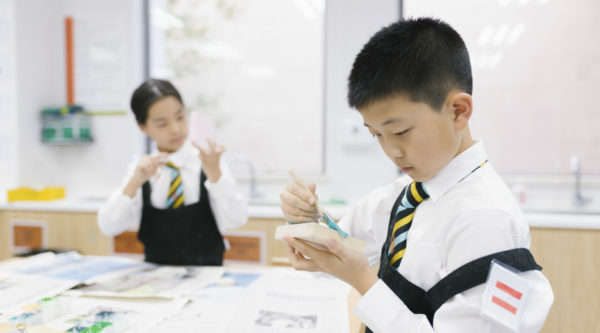
Pupils at Hiba are immersed in Chinese and Western cultures. They study not only Romeo and Juliet by William Shakespeare but also Peony Pavilion by Chinese playwright Tang Xianzu. Their appreciation of two cultures helps them to develop a more open mind and keener insight. Language and culture, of course, are interconnected. Moreover, the daily flag-raising ceremony and coursework in ethics align with my family’s educational philosophy. When self-identity is consolidated, courses such as wellbeing ensure a pupil's mental and physical health. The school’s curriculum also promotes in my children an international perspective and encourages them to be open and inclusive. These are important values that will serve them well in their adult lives.
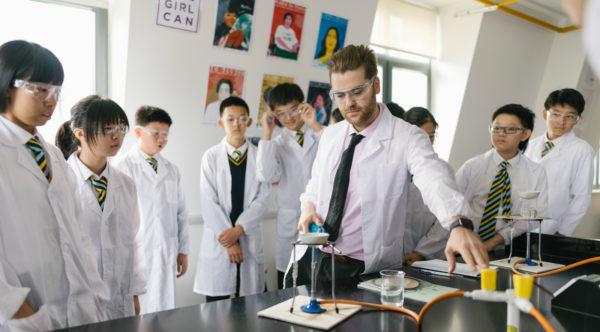
I like that the school diligently maintains a line of communication with us as well. Hiba offers 12-year schooling, ensuring a stable, consistent learning environment for pupils. We are informed as early as possible of anything relevant to our children. For example, the school holds workshops for grade 8 parents to introduce them to the IGCSE and IBDP curriculums. Parents of younger pupils are also welcome. Early access to such information means that we have ample time to prepare and start making decisions with our children. The school puts great effort into instilling the Hiba Values and Identity into its pupils. These soft skills will prepare them to deal with life's uncertainties more constructively.
My work keeps me busy. Nevertheless, communicating with my children daily is very important to me. Normally, I do not correct Peter’s homework for him. I expect him to complete it and seek feedback and instruction from his teachers. However, if we discover that his work is unsatisfactory, we work together to figure out the reason why. If it is because of his own failure to study, we encourage him to redouble his efforts.
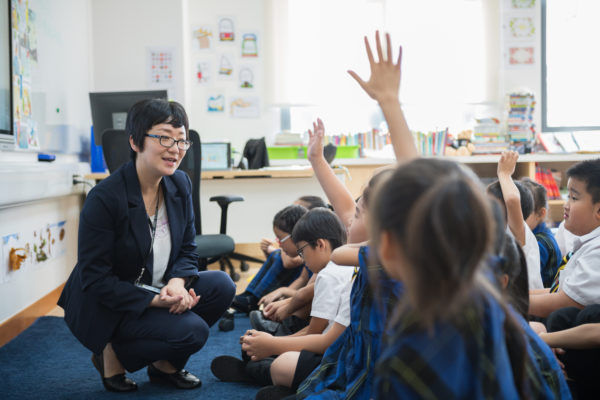
Sometimes unsatisfactory results come in despite hard work. In those cases, we can reach out to the teacher directly and figure out a new course of action. The quality of homework is an indicator of Peter's studies at school. I notice Peter applies many learning skills to his homework. For example, when writing a speech, you should have a thesis to prove, learn how to conduct research and cite your sources properly. Homework guides pupils in how to apply their knowledge and expand on what they learned. The school wants to teach pupils how to learn on their own, not just remember facts and figures. Before he does anything else after school, Peter is expected to finish his homework and do a good job of it. We also insist on not signing him up for additional classes outside of school. Hiba has its own bilingual curriculum that is unmatched in other schools. Over the past two years, I have witnessed the gradual improvement of its curriculum framework, which helps pupils build a systematic cognition pattern and skillset through differentiated and small class teaching. Another reason is the assignments designed by the school can consolidate what pupils learn in class. Teachers’ meticulous feedback about their homework can help parents in coaching their children.
Peter is part of the school orchestra, and we fully support this. He plays the violin. We believe he should practise regardless of any raw talent he may have. Besides the practice, his experience playing in the orchestra will also be influential to his later life in the form of soft skills. His success in this orchestra depends on his ability to work well with others and recognise that he is part of something greater than himself. This is an invaluable skill in any career.
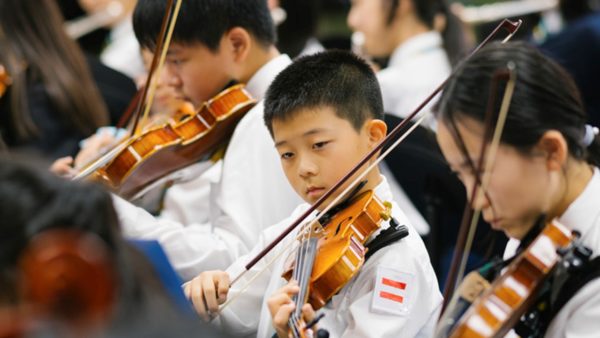
We encourage Peter to pursue things he is passionate about. For instance, he is interested in computer programming. He particularly loves developing games. A child’s interest enables them to understand the world from another perspective. It can also enhance their appreciation for the arts, sciences or any other field. Parents often have their own ideas about what kinds of hobbies their children pursue. I am no exception in this regard. Nevertheless, I understand the importance of respecting a child’s unique talents and interests. This will ultimately drive them to put their passion into whatever they pursue.